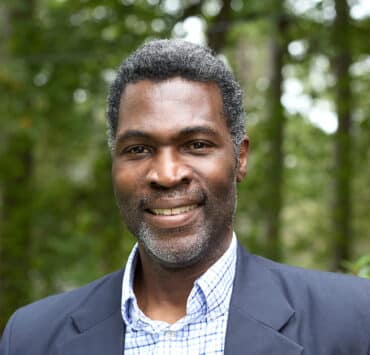|
Getting your Trinity Audio player ready...
|
“You need to make your decision right out of the gate,” Tim Parilla says. “Are you a businessperson with a legal background or are you a lawyer who’s trying to play business games?”
Parilla insists that in most ways, he’s a pushover, but his stance on how to lead an in-house legal function is most definitely not one of them. The chief legal officer (also licensed pilot and adult rec league hockey player) at AI-powered contract management and analysis company LinkSquares is here to politely challenge you on what it means to act as an in-house lawyer.
Learn By Night
Parilla became a lawyer in-house at a gaming company based in Cambridge, Massachusetts. It wasn’t a rudimentary role—he was the first and only in-house attorney at the two-hundred-person software company. The company was in the very early processes of selling itself, allowing Parilla to interact with outside counsel, take on M&A work, and learn on the fly about how to partner with the business.
“I was acting as a mouthpiece between the attorneys and the business, and there was a lot I had to figure out on my own,” the CLO says. “I had to lean on some fundamental skills from law school, which is kind of crazy, because you don’t learn much about actually practicing law in law school.”
Parilla had learned that if he didn’t know something, he had no choice but to figure it out on his own. The young lawyer spent many nights off the clock searching Westlaw for guidance on legal issues and tracking down secondary articles and thought leadership pieces to help him understand how to become a strong in-house attorney.
This education occurred between repeatedly started and stalled acquisitions. And for good measure, he ended up in high-profile litigation with a major Las Vegas casino over a contract that had been entered into before he arrived.
Court and Controversy
It wasn’t the last time Parilla would work on litigation that made headlines. The lawyer would join DraftKings in 2014 as the first in-house lawyer for the tiny company—at least at the time he joined.
“It was a time of massive growth and massive controversy,” Parilla says matter-of-factly. “We went from forty or fifty people when I joined to three or four hundred by 2016. It was all about scaling the legal department and really understanding what it means to build a legal function in a high-growth company that can actually serve and anticipate the needs of the business.”
For the uninitiated, DraftKings and competitor FanDuel found themselves as the temporary media representation of all things illicit when a narrative that a DraftKings employee used “insider information” to win a competitor’s fantasy sports competition captured the popular imagination.
“To anyone who remotely understands this, it makes absolutely no sense,” Parilla says, laughing. “But nobody wants to read a story headlined ‘DraftKings does the right thing.’”
To compound the pressure, the very model that DraftKings and other companies used suddenly came under scrutiny and labeled as “illegal gambling.” This is where Parilla truly came into his own.
“So much of this came down to perception,” the CLO says. “Perception taught me a ton about risk appetite, about how to approach the business, and the fact that so many chief legals will call themselves commercial but it’s rare that they actually are. The experience at DraftKings taught me, really, what it means to be ‘commercial’ as a lawyer.”
Parilla says a truly commercial lawyer is committed to working through a crisis or a challenge and embraces the negative consequences of taking on risk. Unless a business is fundamentally flawed, you can manage and overcome a crisis. It’s at this point that the lawyer seems to truly come alive in the conversation.
“When you’re looking at a growth-stage company, there are risks that you have to take, and you have got to own those risks,” Parilla implores. “At one point, we had reached the worst-case scenario of various law enforcement agencies telling us that what we were doing was somehow illegal. We chose to stand our ground and say no, because we had done our due diligence. We knew the law surrounding our business and knew where we stood.”
The Passion to Build a Legal Function
The lawyer stayed in the role for seven years—a substantial period in a hypergrowth company. It was the challenges that kept him coming back for more. With the company going public in 2020, Parilla knew it was time for the next chapter.
“It would have been a safe play to stay at DraftKings, but I wanted another shot at a start-up; I wanted to cement my career in the start-up and growth-stage world,” Parilla says. “I loved my time at DraftKings, deeply value the experience and the great friends I made there, and more than anything, it crystallized in my mind my passion for optimizing the way that a legal department should work in a tech company.”
At LinkSquares, Parilla says the lack of high-profile drama has afforded him the time to lean into that passion full-on. The company builds software that helps lawyers interact with the business in a more meaningful and efficient way. Parilla’s expertise at building a business-focused legal function has created a full-circle payoff of high performers matched with a product that helps enhance their process.
“I received the due diligence request list for our Series B financing on a Wednesday night and, using our platform, it was substantially complete by end of day Friday,” Parilla says. “Every contract and every agreement is there, and we went from signing the term sheet to money in the bank in less than six weeks. It’s just unheard-of.”
This brings Parilla back around to what it means to own the legal function, in the best of times or the worst of times. “If you’re at this level of an organization and there’s a failure, it’s your fault, period,” the CLO says. “If you don’t have that mindset, then you’ve already failed. In real life, that looks like your team buying into the idea of success as a team; they’ll see that you have to foster it and that success is absolutely dependent on the success of everyone else.”
This methodology is predicated on Parilla’s stark assessment that the legal function exists to enable the business. “The only reason you exist is because people are building, marketing, and selling a product,” he states.
It may be tough for some in-house professionals to hear, but Parilla says the decision to be a businessperson first is what separates truly great in-house lawyers from the competent ones. Recognizing the risk is table stakes and managing it lets you keep your job, but owning it makes you stand out.



